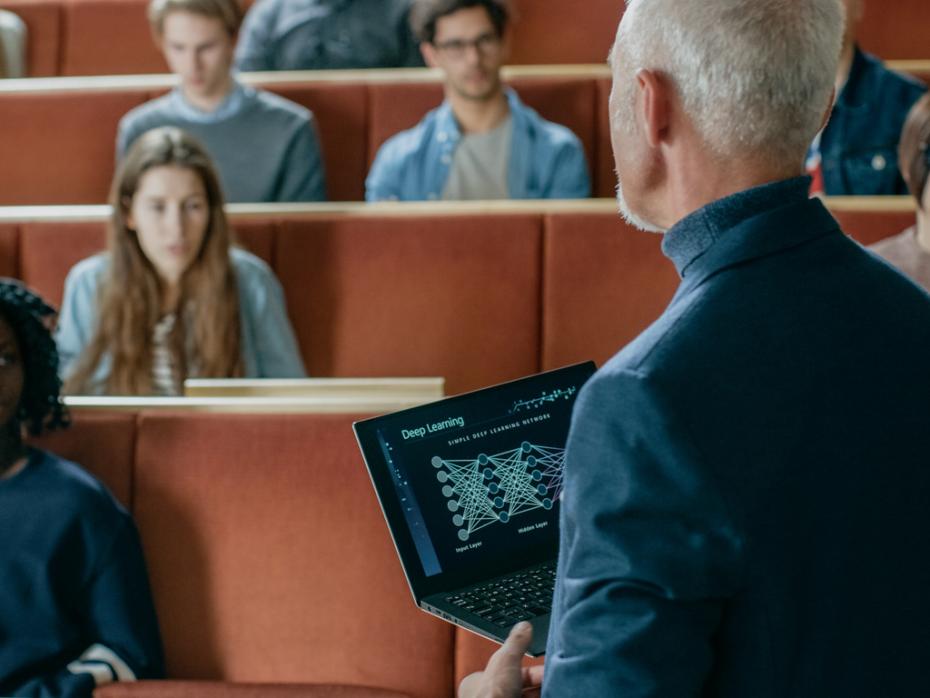Career practitioners recognise the need for evidence-based, tailored programmes that synthesise the skills graduates need to optimise their career options and develop a professional identity. Developing such programmes from scratch, however, requires time and pedagogical expertise, resources that can be scarce for overextended faculty supervisors and administrative staff. A potential solution to this common challenge is forging collaborations across institutions to implement programmes that have already been developed, tested and crowd-sourced by pedagogical experts.
Here, we share our experiences implementing the PhD Career Ladder Program (PCLP), a framework from the Professional Development Hub (pd|hub – see Additional Links), which delivers robust career exploration and professional development programming for graduate students and postdocs. We discuss the impacts of the PCLP on our target populations at the Georgia Institute of Technology (Tech), the University of Wisconsin-Madison (UW-M) and North Dakota State University (NDSU). As career development practitioners, we also share how a community of practice expanded our bandwidth and assisted us with decisions and challenges around programme implementation.
One model, seven steps along the career exploration path
Three of us, Karena Nguyen (Tech), Anne-Sophie Bohrer (UW-M) and Matthew Warner (NDSU), were selected to implement the PCLP. The model, originally developed at Stony Brook University, is a peer-led, cohort-based career development mentoring programme that provides an iterative framework to prepare participants for exploring careers. Stemming from scholarship and applications, the PCLP offers seven steps along the career exploration path. Each step focuses on the participant’s progress and relies on group discussions to address concerns about the career exploration process and to share resources, tools and innovative practices.
- ‘Changing the culture from academic-owned equipment to shared ownership is not easy’
- How to enhance teaching skills in a multidisciplinary environment
- How a strong network can enhance the PhD journey
While implementing the PCLP curriculum on our campuses, we established a community of practice led by Paola Cepeda, assistant vice-chancellor for postdoctoral affairs at Washington University in St Louis and fellow of the pd|hub collection. During monthly meetings, we had the opportunity to ask her questions about the programme curriculum, discuss our implementation strategies, share ways we adapted the model to our target populations, and brainstorm solutions to the few challenges we encountered.
Emergent features from the first year of implementations
From summer 2023 to spring 2024, we recruited graduate students and postdocs to join the PCLP at our respective institutions, conducted sessions with the first cohorts and maintained a feedback loop within our community of practice. Several patterns emerged that highlight the positive impact on participants and us as career development practitioners.
Evidence-based programmes yield positive participant outcomes across different institutional contexts
While implementing the PCLP on our campuses, we maintained the original curriculum but made different decisions about marketing, delivery method, meeting frequency and other logistics, based on our own institutional contexts.
During our implementation of the PCLP, we found that, before the programme, participants across all three institutions had felt isolated in their efforts to explore careers and step into their next professional stage. But, although they often completed the process individually, participants found that with continued engagement with the PCLP, they discovered a sense of local community and accountability. Hearing that participants from other institutions shared similar struggles further diminished feelings of isolation. After the programme, they also reported greater confidence in exploring career options.
For us, the positive outcomes show that career practitioners do not need to reinvent the wheel if a programme has proven effective. At the same time, we know our institutional contexts best and can make decisions about how to deliver an existing programme to maximise the professional development of our target populations. The community of practice gave us a space to share and discuss these adaptations, and brainstorm additional approaches to implementation.
Communities of practice support innovation, collaboration and sustainability
Practitioners, researchers and partners have competing needs and constraints on their time and expertise. It can be challenging to discern which practices are effective and impactful. By implementing an evidence-based programme from a centralised repository, we eliminated the programme-development phase and drew upon fewer resources yet delivered high-impact content.
A community of practice enabled us to network with peers in the field, share implementation strategies across institutions and learn with each other. The support from a community of practice is especially important for small offices or organisations that do not have a built-in local network.
Implementing a structured career development programme with the assistance of a community of practice results in a win-win situation, based on our experiences. Opportunities for professional development and clarity about career paths can empower graduate students and postdocs, increasing their research productivity and self-motivation. Faculty, staff and administrators feel more confident implementing new programmes and have more bandwidth for other priorities with external support from colleagues. Peer-led models such as the PCLP have proved particularly valuable for our participants and ourselves; it allowed us all to build a supportive environment for professional growth while using fewer resources, which maximised the results of our work.
Karena Nguyen is assistant director of postdoctoral services in the Office of Graduate and Postdoctoral Education at Georgia Institute of Technology. Paola Cepeda is assistant vice-chancellor for postdoctoral affairs in the Office of the Vice Chancellor for Research at Washington University in St Louis. Anne-Sophie Bohrer is training coordinator in the Great Lakes Bioenergy Research Center in the Wisconsin Energy Institute at the University of Wisconsin–Madison. Matthew Warner is coordinator of the Graduate Professional Skills Academy in the College of Graduate and Interdisciplinary Studies at North Dakota State University.
If you would like advice and insight from academics and university staff delivered direct to your inbox each week, sign up for the Campus newsletter.




comment